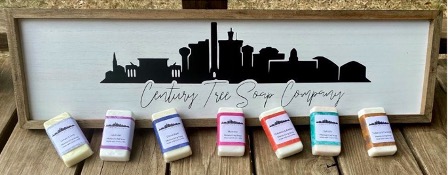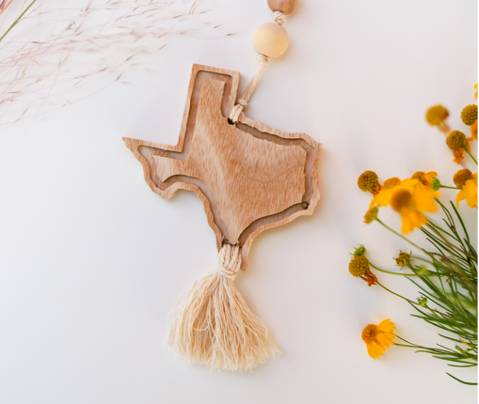Texas A&M MS Business program celebrates 2020 Integrated Business Experience successes
December 14, 2020
|
Kiri Stanford
Mays Business School’s master’s in management degree gives students in-classroom and high-impact experience
On December 2, students and faculty of the Master of Science in Business (MS-B) program gathered virtually to celebrate and share their semester-long projects from the Integrated Business Experience (IBE) class.
Associate Dean for Graduate Programs Arvind Mahajan said, “It’s an important day for our students as well as for our program. MS Business admits diverse undergraduate majors and invests in many ways to develop them as transformational leaders with entrepreneurial mindsets. This course is a perfect example of that change.”
The MS-B program is a graduate degree designed for non-business majors who want to grow their business knowledge to supplement their bachelor’s degree.
Student Rigor
MS Business Program Director, Richard Castleberry, said of the students, “Other than students with great academics and backgrounds, a primary component we look for is students who show the Aggie Core Values of excellence, integrity, leadership, loyalty, respect, and selfless service. We insist these traits display in our students, and I can say that the 62 students that are here today exhibit those Aggie core values.”
Mahajan further explained, “Our program provides rigorous classroom education in the traditional business areas of accounting, finance, marketing, management, and supply chain. It also provides hands-on experience of learning how to be an entrepreneur by applying all the knowledge learned in the classroom. That is what the Integrated Business Experience course is all about: learning business by doing business.”
Started in 2016, the IBE course exists to have students understand business by actually running their own business venture, rather than through case studies or by working on an existing business. Students create an idea for a product or service they want to sell, complete market research, build a website and marketing plan, coordinate manufacturing and distribution logistics, and perform many other activities that are necessary for running a business. Students effectively become startup founders over the course of a semester and even pitch to a local credit union to receive a loan for their startup costs.
Team Effort
LauraLee Hughes, Assistant Director of New Ventures at McFerrin Center for Entrepreneurship and Instructor for the IBE course, made sure to recognize the role of the other MS-B faculty in preparing students for the IBE course, saying, “They do the hard work of teaching the students the core principles required for them to be successful in IBE. My job is to then help them learn how to effectively apply those in a real-world setting. I work with many of the faculty across the MS-B program and I want to thank them for the amazing job that they do in teaching the students the fundamental skills that equip them to be able to run their businesses in IBE.”
This was Hughes’s second year with the IBE course and she brought some fresh eyes to the course, changing a few of its foundational pieces both in 2019 and 2020. The first and most significant change was made last year with the creation of a new non-profit organization – Brazos Valley Business Education Experience, Inc. – through which all of the IBE business activities are run. With support from leadership at Mays Business School and multiple partners in the local community, this organization was formed to remove limitations students previously experienced when operating their businesses as a student organization within the university. Even more so this year, this change has proved to be highly valuable to the learning experience of the MS-B students, as it gives them the ability to operate their businesses much more like any other entrepreneur or business owner would.
This year, Hughes made additional changes to enhance the rigor of the course and better equip students for their post-graduation plans. The most significant change involved how teams were structured and the decision-making process for how they received funding to launch their businesses. In previous years, the number of teams and business ideas were reduced by half after an initial company pitch, and students would work in “super teams” to secure funding and ultimately launch their businesses. This year, all 13 teams were required to pitch a business idea and a request for seed funding to representatives from Aggieland Credit Union, which has provided financial and other support for the IBE course since 2016. In some cases, this meant teams had to negotiate the terms of their funding to move forward with their business or pivot to a completely different product idea if their funding request was denied. This process not only allowed many more creative business ideas to move forward in the IBE course, it more closely mirrors what most entrepreneurs go through when trying to secure funding for their startup.
Success Despite Setbacks
In addition to navigating the typical challenges of learning how to launch and run a business, students in this year’s course had to overcome additional challenges due to the effects of the COVID-19 pandemic. The IBE course was taught this year in a hybrid format so teams had to quickly learn how to work effectively with each other to develop and execute on their business ideas in a virtual environment. Some teams ran into communication issues and experienced abnormally long shipping delays with manufacturers in China and other countries because of increased import/export regulations. Also, for the first time in the history of IBE, teams could not rely solely on in-person sales opportunities, such as farmers’ markets, festivals and other similar events. While teams did still participate in The Local (a weekly artisan marketed hosted at LakeWalk Town Center) and held sales events of their own around town, these channels are typically the primary revenue generators for the student teams in IBE. Due to strict social distancing guidelines and the cancellation of many of these events this fall, teams had to work hard to develop an online presence and be able to effectively reach their target customers through social media and other means. This shift to primarily conducting business online, while a side effect of the COVID-19 pandemic, is yet another example of how the IBE course is true-to-form with the way many businesses operate, especially today.
For the 13-week semester, students run their businesses and sell their products – in addition to completing their other coursework. At the end of the semester, the profits generated from their business activities are donated to local charities. This year, 62 students launched 13 businesses that sold over 3,000 product units, generated over $36,000 in gross sales revenue, and will result in an estimated $16,000 in profits being donated to their named charities.
During spring break, the students in the program travel internationally for a study abroad experience as part of the International Business Environment course. In addition to regular coursework taught by the faculty member, students will learn from guest speakers and tour local companies.
More information on these student-led businesses, their product, and the organization that will benefit from their activities are as follows:
| Business Name | Team Members | Product Description | Charity Supported |
| Buggy Buddy | Andrew Damian | Hand-sewn, reusable fabric cover for shopping cart handles | Cystic Fibrosis Foundation |
| Piper Smith | Holly’s Hope Rescue | ||
| Macie Mateja | |||
| Michelle Acedera | |||
| Skylar Goertz | |||
| Ring Day Rush | Alayna Aimes | Bryan-College Station-themed board game | Carly’s Way Animal Rescue |
| Christian Speer | |||
| Dominique McDermott | |||
| John Heselton | |||
| Nick Deatherage | |||
| Howdy Bears | Ana Diaz Covarrubias Meza | Buy-one, donate-one Aggie-themed teddy bear | McLane’s Children’s Hospital |
| Chris Olson | |||
| Emma Alberts | |||
| Grant Hill | |||
| Zachary Stachnowiak | |||
| Handy Mask | Olivia Ausmus | Hand-sewn, dual purpose mask/scrunchie | Voices for Children |
| Taddeus Dixon | |||
| Natalie Hoelscher | |||
| Macy O’Neal | |||
| Marshall Todd | |||
| Ag Cleanse | Jake Walzel | Customized, reusable plastic bottles with key chain carabiner | United Way of the Brazos Valley |
| Knight Doggett | |||
| Kyler Beaton | |||
| Robyn Ramon | |||
| Slap N Wrap | Allison Hurt | Flexible, one-size-fits all beverage holder | The Bridge Ministries |
| Anna Dreimane | Kay Yow Cancer Fund | ||
| Courtlyn Ranly | |||
| McKenna Benbow | |||
| Trey Watson | |||
| Serenity by Ags | Taylor Riser | Hand-poured, Texas-themed candles | Iron Freedom Foundation |
| Madelyn Dudley | |||
| Reed Wilson | |||
| Jacob Johnson | |||
| Shane Blozis | |||
| Naturawood Co | Trisha Edwards | Hand-crafted wood essential oil diffusers | Scotty’s House |
| Ivy Robinson | |||
| Colton Breitenbach | |||
| Avery Klepac | |||
| Alana Winklepeck | |||
| 12th Box | Jordyn Bugai | Aggie-themed gift box for students | Keegan’s Promise |
| Kate Wynn | |||
| Kennedy Leer | |||
| Lila Ross | |||
| Michelle Estrada | |||
| Texas ThermoTech | Aliya Zaidi | Re-seller of contactless infrared thermometer | Leukemia and Lymphoma Society |
| Bryce Lesher | |||
| Meredith Cole | |||
| Sophia Salazar | |||
| Tyler Evatt | |||
| Century Tree Soap Company | Christiana Looke | Handmade goat’s milk soap bars | Prenatal Clinic of Bryan |
| Claire Lindemann | |||
| James Fitzgerald | |||
| Kile Coleman | |||
| Preston Salinas | |||
| Canine-19 | Caitlin Cracraft | Texas-shaped dog toy | Aggieland Humane Society |
| Carter Gehm | |||
| Elise Lopez | |||
| Will Scarbrough | |||
| Reveille Roasters | Kenneth Mount | Aggie-themed premium coffee blends | Boys & Girls Club of the Brazos Valley |
| Savannah South | |||
| Timothy Garraffo | |||
| Alexandra Fields |
For more information on the MS Business program, click here.
For more information on the IBE Course, click here.
About Brazos Valley Business Education Experience, Inc.
Brazos Valley Business Education Experience, Inc. is a Texas-based non-profit organization formed solely to provide an operational framework that supports the educational experience of students in the MS Business program at Texas A&M University. The organization is supported by a Board of Directors representing multiple community business partners, including:
- Mays Business School
- McFerrin Center for Entrepreneurship
- Brazos Valley Economic Development Corporation
- Brazos Valley Small Business Development Center
- Bryan-College Station Chamber of Commerce
- Greater Texas Federal Credit Union/Aggieland Credit Union
- United Way of the Brazos Valley





